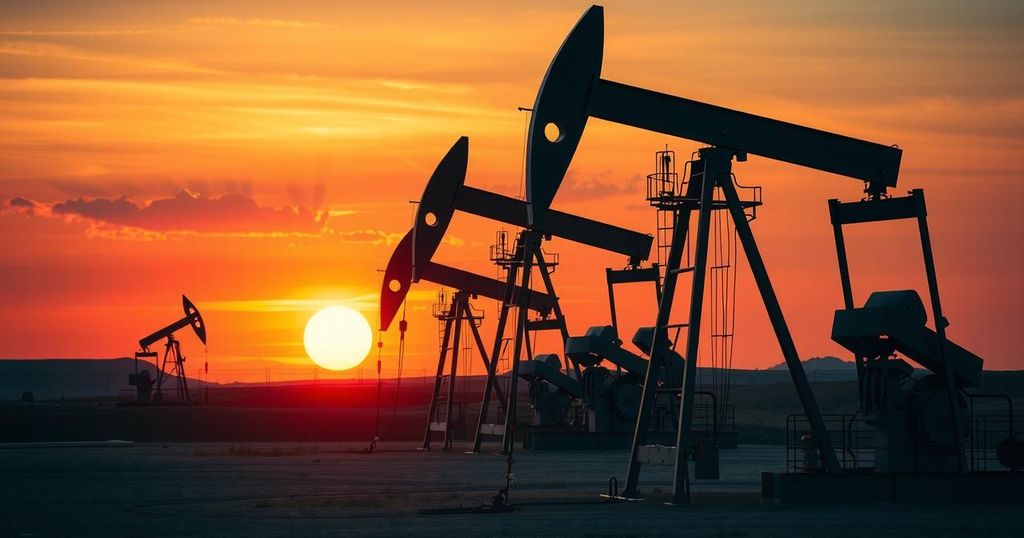Argentina’s oil production has surged over the last three years, raising hopes against a backdrop of economic hardship. Critics voice concerns over equitable benefits, environmental protections, and the government’s commitment to climate goals amidst this oil boom, particularly from the Neuquén Basin region.
Argentina has experienced steady oil production growth for approximately three years, with projections indicating the country becoming a major global energy supplier. This optimism contrasts sharply with Argentina’s prolonged economic challenges, including declining GDP per capita and increasing poverty levels. Critics raise concerns about the equitable distribution of economic benefits, access to energy, and the environmental repercussions of the oil expansion, particularly within the context of Argentina’s climate commitments.
In summary, Argentina’s burgeoning oil production, particularly in the Neuquén Basin, heralds potential economic benefits amid urgent calls for addressing environmental and social consequences. Although projections reflect substantial export growth, the reality of poverty and environmental degradation questions the overall effectiveness and equity of the oil boom. The emerging regulatory challenges pose a risk to the balance between development and sustainability, necessitating a reevaluation of state roles in energy and environmental governance.
Original Source: www.globalissues.org




